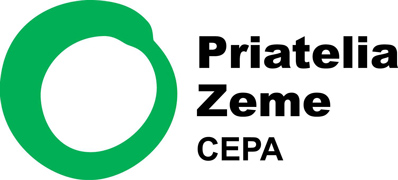July 18, 2002
Friends of the Earth Slovakia
CEE Bankwatch Network Slovakia
Center for Environmental Public Advocacy
Friends of the Earth Slovakia, CEE Bankwatch Network Slovakia and Center for Environmental Public Advocacy sent an open letter today to Eneko Landaburu, Director General at DG Enlargement regarding debatable incentives provided to large foreign corporations by the Slovak government.
Few weeks ago, the mentioned non-governmental organizations (NGOs) submitted to relevant EC representatives, including Mr. Guenther Verheugen, EC Commissioner for Enlargement, a Position Paper on Competition Chapter. In their position paper, the NGOs documented the fact that both legislation regulating state aid and real policies concerning provision of state aid in Slovakia (such as tax relief and investment incentives) contradict the rules, as applied and implemented in the EU in this area. In his response of July 10 E. Landaburu confirmed a serious interest of the European Commission (EC) in the points raised by the NGOs. In the meantime, however, Slovak Deputy Prime Minister Ivan Miklos and EU Commissioner Mario Monti met for discussions. The statements delivered by Mr. Miklos to the press after the talks confirm that Slovak government is trying to maintain the unmaintainable. According to Mr. Miklos "the tax holidays for Volkswagen will be – after agreement with the European Commission (EC) – converted into another form of state aid that is EU conform” and “further negotiations will be necessary” concerning the tax holidays for U.S.Steel. The message of these words is practically identical with the statement delivered in February by Deputy Prime Minister Maria Kadleciková who said that if the EC compels Slovakia to cancel tax holidays, the government would have to find other ways to compensate those affected for the loss they might suffer. Some time ago, the then Finance Minister Brigita Schmognerova admitted that the Slovak government had entered into agreements with several private companies, obligating the government to grant various types of incentives, including tax holidays. It is very likely that the obligations assumed by the government under those agreements cannot be annulled without consequences -- the parties aggrieved may seek judicial award of compensation for “damages”. In the opinion of CEPA and the Friends of the Earth, such a policy conduct is no longer acceptable. The government has devised a broad spade of various forms of direct and indirect incentives for large private foreign corporations, which distort business environment in Slovakia to the detriment of small and medium enterprises, reduce the availability of public funds for regional development, and contravene the EU competition and state aid rules. The manner in which subsidy-granting decisions are taken in Slovakia is non-transparent and encourages public officials, including cabinet members, to ignore public interest. Since the year 2000, the EC has repeatedly accentuated that the tax incentives granted by the Slovak government to private companies are in conflict with the Europe Agreement, may complicate mutual negotiations under the Competition Policy chapter and, eventually, impede the accession of Slovakia to the EU. In spite of these warnings, the government is trying to maintain the system of tax holidays at all costs in order to avoid direct solution – their cancellation. The most recent amendment to the Income Tax Act (adopted by the Slovak parliament on 19th June 2002) specifies the conditions for the award of tax incentives in the future, but does not deal with those granted prior to its adoption. Also other incentives of state-aid type remained intact. The government has chosen a non-standard solution and is trying to obtain the consent of the EC with non-systemic formal solutions for subsidising large corporations that are, for obvious reasons, also in the focus of EC attention. Deputy Prime Minister Miklos encrypted such non-systemic solutions into the term “conversion of subsidies”. In the case of Volkswagen, the government has not yet publicised any proposal as to which kind of aid it intends to “convert” the existing tax holidays for this and other companies. There is a risk that the government, together with aid beneficiaries, will attempt to camouflage their investments just to show formal compliance with the state aid limits (for Bratislava, a maximum of 20% of capital expenditures plus restrictions concerning automobile production and other sensitive sectors). Rather than being driven by an effort to accommodate public interest, the government invented this formal “conversion of subsidies” to avoid the consequences of ill-balanced agreements signed with the beneficiaries of aid. “We believe that the European Commission will not act in a manner that would compromise the principle of strict adherence to EU laws. Any such signal could have undesirable consequences in candidate countries by undermining the trust of those citizens who believe that compliance with the laws of the EU is immune to political pressures and private economic interest”, Roman Havlicek, project coordinator of FoE-S commented.
For more information, call Roman Havlicek at +421 45 5331775 or +421 48 4193324 or e-mail at Táto e-mailová adresa je chránená pred spamovacími robotmi. Na jej zobrazenie potrebujete mať nainštalovaný JavaScript.

